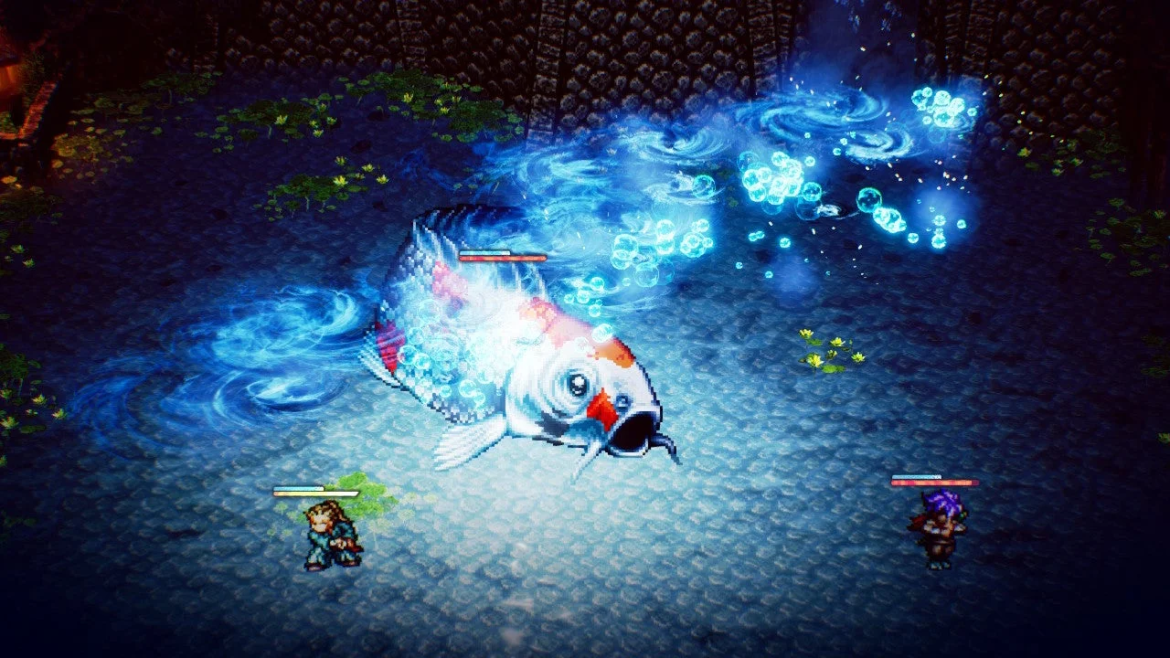Welcome back readers.
No major updates around the site this week. Instead, let’s dive right in to this week’s picks.
This Week in Videogame Blogging is a roundup highlighting the most important critical writing on games from the past seven days.
Past, Present, Future
We open this week with a pair of industry-level perspectives looking alternately at the preservation of what we’ve made and the new stories yet told.
- The Game Availability Study, Explained | Video Game History Foundation
Phil Salvador sums up the dire state of classic games availability and preservation. - Changing The Landscape: The Future Of Games And First Nations Storytelling | Kotaku AU
Cat Benstead chats with developers and storytellers about the growing influence of Indigenous storytelling in the Australian games industry.
“This is the beautiful part about Indigenous culture and storytelling. There is so much to know about the traditional custodians of this country; how Indigenous storytelling can give us so much insight into a wonderful culture and history that is rarely spoken about in a positive light.”
Historical Friction
Different questions and tensions emerge in this section on approaches in games to the representation and simulation of historical atrocities both inside and outside of living memory.
- can you make a good grand strategy history game | cohost
cassandra caplan compares minimal and maximal approaches to simulating atrocity in grand strategy games. - yeah, kinda. | cohost
Kastel proposes that maybe the problem is that grand strategy games are just too grand. - Six Days in Fallujah preview: not a shooter but a horror game | TechRadar
Jake Tucker and Cat Bussell maintain that while there’s a space for depicting real-world atrocities in games, this reductive and uncomplicated squad shooter ain’t it.
“I’m not sure how to feel about this, and that growing unease in the pit of my stomach makes it hard to recommend over games with fictionalized settings. While people trying to be smart will now point at titles like Medal of Honor or Call of Duty and their use of World War 2, I’d say that my experiences with Six Days in Fallujah have left me feeling more unsettled about those games, too.”
Reload, Revisit
Different design angles come together here in meditations on randomization, genre, and good old gunfeel.
- Yearning, Once More, to Forget | Bullet Points Monthly
Pao Yumol compares the less-predictable but less-reliable randomized approach to horror in Amnesia: The Bunker to the more curated format of the original Dark Descent. - HEIRLOOM | DEEP HELL
Skeleton zeroes in on that ur-text of FPS gun porn, the shotgun, via an example from the zenith of US imperialism’s fucking around phase.
“The American Shotgun carries with it a feverish, pacifying quality. Good for home defense. Exorcise a devil, a ghost, or a robber: in some paranoid imaginations, one of them is all of them. After all, who could be looking into my neighborhood windows? Thinking about everything I’ve worked Real Hard for that they don’t have…or maybe motivated by a type of maliciousness towards all that I’ve fought for by clocking in and clocking out every day. A shotgun can look like a nice piece of decoration next to a night stand, and the cops have them in all of the magazines.”
Role Playing Gains
Next up, four intersecting perspectives on character and story in an increasingly blurred genre space.
- All’s Well in the Kingdom | Unwinnable
Jay Castello winds a wellspring of exploration–and enthusiasm–just beneath Hyrule’s picturesque surface. - Final Fantasy 16’s Benedikta Deserved Better | GameSpot
Jess Howard unpacks a character that might have been more. - Star Wars: Knights Of The Old Republic Both Blurs And Upholds The Franchise’s Age-Old Binaries | GameSpot
Grace Benfell celebrates KOTOR‘s 20th by taking the shine off it a bit. Lovingly. - Final Fantasy XVI: The one that can say “fuck” | Medium
Bobby Schroeder delves into an unrewarding narrative morass that might have been better off just being the shonen anime it wants to be.
“We’re never truly invited to see Benedikta’s perspective. We get so little of her inner life. We get hints, but she mainly exists in relation to the men she slept with. We see her through their eyes, not hers. She exists to further their stories, not her own. By the time we finally start to deal directly with Barnabas and reach Waloed, she may as well have never existed at all with how little lasting impact she has. And this will become a recurring problem with the game’s handling of its female cast — and, hell, the male villains don’t fare much better, either, when it comes to having any real depth.
…But, uh… at least the combat’s fun, right?“
Critical Chaser
A little RPG denouement from Spine.
- Petty Godhood | Into The Spine
Adam Wescott makes a strong case for SaGa, where even the gods are Posters.
“Not everybody appreciates the fickle math of these games. Yet, I love that the SaGa cosmos is governed not by elemental forces, but by petty jerks with their own wants and needs.”
Subscribe
Critical Distance is community-supported. Our readers support us from as little as one dollar a month. Would you consider joining them?
Contribute
Have you read, seen, heard or otherwise experienced something new that made you think about games differently? Send it in!


